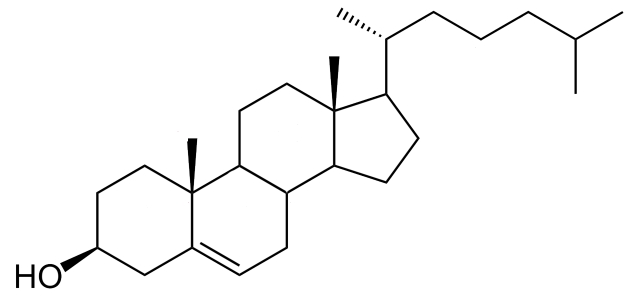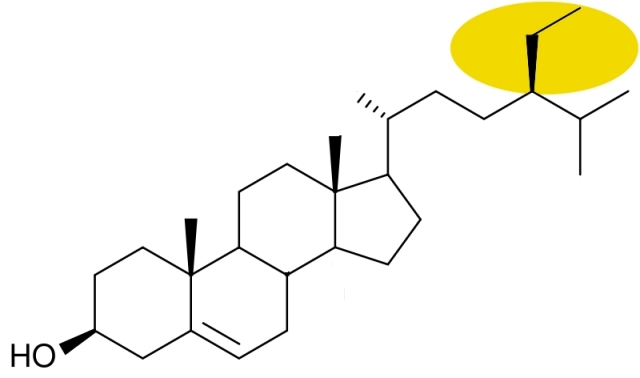OVERVIEW
Plants do not produce cholesterol, but they do produce other steroid compounds that
are similar, but different enough that they are treated differently in the body.
These steroids are called phytosterols (plant sterols) or
xeno-sterols (foreign sterols).
The two following images show cholesterol and a typical plant sterol,
beta-Sitosterol:


Note that the only substantive difference is a slightly different "decoration" at
position 17 (see yellow highlight of difference).
This difference may seem small to the human eye, but to the body the
difference is huge.
In some cases, phytosterols have useful effects in the body. For example some phytosterols have estrogenic properties that benefit perimenopausal women, while other phytosterols "modulate inflammation, have antioxidant, antiulcer, immunomodulatory, antibacterial, and antifungal effects; and also intervene in wound healing promotion and platelet aggregation inhibition" [Frontiers].
However, some people are genetically pre-disposed to accumulate some phytosterols (their liver cannot eliminate the excess phytosterols into the bile), which can cause cardiovascular problems similar to excess cholesterol.
Unfortunately, regular health screening tests (lipid profiles) do not detect dangerous accumulation of phytosterols. However, there are more sophisticated tests that your health-care provider can order if genetic data suggests a possible problem. If an unwanted accumulation of phytosterols is detected by these tests, pharmaceutical interventions are readily available.
Dosage:
- Tolerable Maximum Dose: Typically there is no upper limit; people with certain genetic predispositions must restrict intake.
SOURCES
Extremely rich food sources of phytosterols include:
- Unrefined plant oils such as olive oil
- Vegetable oils such as corn, safflower
- Nut and seed oils such as sesame, macadamia, and almond
- Legumes such as soybeans, peas
- Wheat germ oil
- Unrefined plant-derived lecithin.
SEEALSO
-
Cholesterol

![[PubMed]](../images/earth_hover.gif)